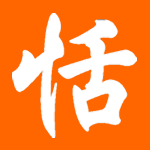to: tiangotlost@gmail.com
date: Mon, Jul 13, 2009 at 9:32 AM
subject: Help with translation - Faith, Hope and Love!
Hey there!
My friend went to Turkey and got himself a tattoo in chinese or japanese. According to him it says "Faith, hope and love", but being the sceptical person I am, I thought I should send a picture to you to verify.
Does it really say that, or is this another case of "Prepaid Public Transportation Card"? (A part of me is hoping it is!)
Thanks for your time!
sincerely,
Erik
To one that is only familiar with Chinese or Japanese, this tattoo would be gibberish.
A quick look via Google Translator, I soon realized this is Chinese phonetic translation of Turkish, where Faith is "inanc" (伊南), Hope is "umut" (乌穆特), and Love is "ask" (阿士克).
The irony is with current situation in Xinjiang, China, were most ethnic Turks reside, Chinese and Turks are not on the best of terms.
Why would anyone stupid enough to get a Turkish phrase to be phonetically translated & tattooed in Chinese? It's like begging to be the Lucky Pierre in middle of an ethnic conflict.


My situation is like a guy whose two good friends (one also being his distant cousin) are on the bad terms with each other. I'm Turkish, and deeply care about Uyghurs but I don't have anything against Chinese people. It's the politicians whom feed on ordinary people's suffering. I hope this mess ends as soon as possible. We're all humans after all.
ReplyDeleteOn the tattoos, they were probably made before the Xinjiang Clashes, so that would not hurt that much. I think I know where those came from. That's the website of a Chinese cultural center, the "Write your name in Chinese" section. It's for personal names but someone managed to get the word Aşk (love) which is not normally used as a personal name inside the site, though its synonyme Sevgi is a so-so popular female name. Probably the guy thought they were the meanings, not the phonetic rendering. He might even think that it's in Japanese.
Addition to previous comment:
ReplyDeleteThough related, Uyghur language and Turkish language are not fully comprehensible. I've been browsing Uyghur sites using Roman alphabet and I can understand roughly 40% of what is written. That is, the words may not be the same in Uyghur.
For the edification of non-Chinese readers of this blog, the typical translation for "Faith, Hope, and Love" in Chinese is "信望愛"
ReplyDelete